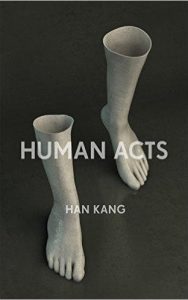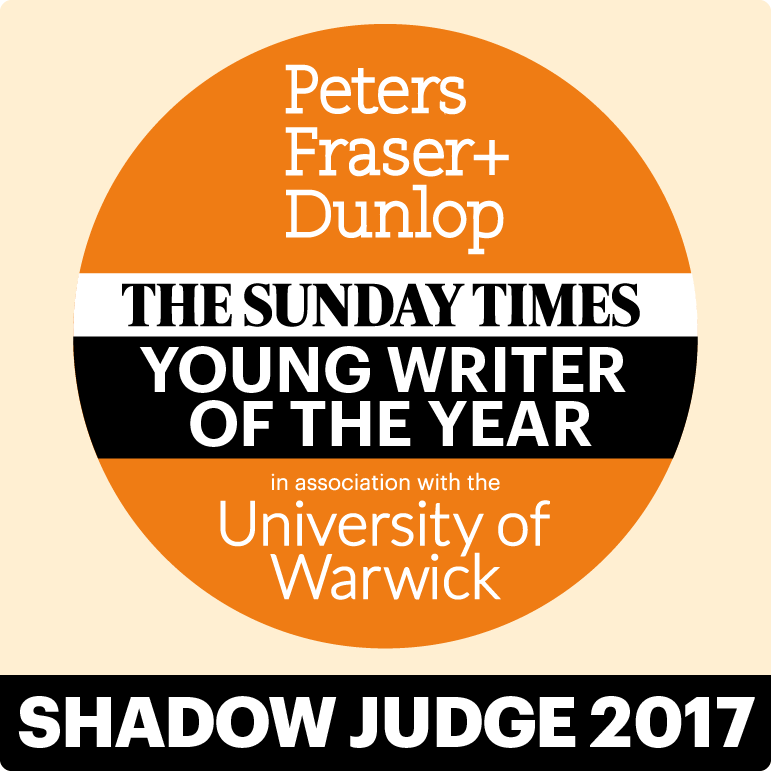 Longlisted for the Man Booker International Prize, ‘The Vegetarian’ by Han Kang and translated from the Korean by Deborah Smith tells the story of Yeong-hye who suddenly declares she will no longer eat meat after having a disturbing dream. Originally published as separate “novelettes”, the three parts of the story are told from the point of view of her husband, brother-in-law and sister respectively who are all outraged by her decision to become a vegetarian in a society where refusing to eat meat is extremely rare.
Longlisted for the Man Booker International Prize, ‘The Vegetarian’ by Han Kang and translated from the Korean by Deborah Smith tells the story of Yeong-hye who suddenly declares she will no longer eat meat after having a disturbing dream. Originally published as separate “novelettes”, the three parts of the story are told from the point of view of her husband, brother-in-law and sister respectively who are all outraged by her decision to become a vegetarian in a society where refusing to eat meat is extremely rare.
Some elements of the story such as the first part narrated by Yeong-hye’s emotionally detached husband were vaguely reminiscent of the novels of Haruki Murakami but that comparison really doesn’t do justice to the unique atmosphere of ‘The Vegetarian’. As Yeong-hye’s obsession begins to manifest itself in extreme ways to the point where she rejects all food and attempts to live as a tree, Kang explores broader social issues surrounding gender politics through Yeong-hye’s relatives’ reaction to her mental illness in spare, precise prose. The absence of Yeong-hye’s own voice as she becomes increasingly disconnected from yet also imprisoned by society is particularly unsettling. Subtle and surreal, ‘The Vegetarian’ is a tightly controlled novella which boldly takes the reader to some very unexpected places.
 Also translated from the Korean by Smith, ‘Human Acts’ tells the interconnected stories of the victims of the Gwangju Uprising in South Korea when labour unionists and student activists protesting against the military dictatorship led by army general Chun Doo-hwan were massacred by soldiers in May 1980. In the opening chapter, fifteen-year-old Dong-ho is trying to find out what has happened to his best friend and ends up working in a temporary morgue with students Seon-ju and Eun-sook. Later chapters are set several years after the massacre has taken place and explore the devastating consequences of censorship and trauma among the victims.
Also translated from the Korean by Smith, ‘Human Acts’ tells the interconnected stories of the victims of the Gwangju Uprising in South Korea when labour unionists and student activists protesting against the military dictatorship led by army general Chun Doo-hwan were massacred by soldiers in May 1980. In the opening chapter, fifteen-year-old Dong-ho is trying to find out what has happened to his best friend and ends up working in a temporary morgue with students Seon-ju and Eun-sook. Later chapters are set several years after the massacre has taken place and explore the devastating consequences of censorship and trauma among the victims.
Kang’s family left the city when she was nine years old shortly before the massacre occurred. Her second novel to be translated into English is therefore a deeply personal one and the blurring between fiction and non-fiction is particularly poignant in the final chapter as Kang comes to terms with the terrible events which have cast a long shadow over South Korea’s recent history. The unrelentingly violent imagery throughout the story is harrowing but never gratuitous although it is often the seemingly more mundane observations alongside the descriptions of torture which convey the horror of the massacre most effectively.
In a short introduction to ‘Human Acts’, Smith describes the challenges of translating “brick-thick Gwangju dialect” and tonal shifts between the different narrative voices. Her definition of a faithful translation prioritises the effect on the reader over technical or grammatical accuracy and it is Smith’s continued focus on conveying the emotional impact of Kang’s prose which makes both ‘The Vegetarian’ and Human Acts’ such powerful novels. Having read the two books close together, I personally felt that ‘Human Acts’ had the bigger impact on me, but I still think ‘The Vegetarian’ has a very strong chance of being shortlisted for the Man Booker International Prize next month.





have to finish one book and read another one, and then to The Vegetarian, I think that will be my first translated from the Korean
LikeLike
Hope you enjoy it – I’ve only read one other book translated from the Korean which was The Investigation by Jung-Myung for the IFFP longlist last year but I much prefer Kang’s work.
LikeLike
I hope too
LikeLiked by 1 person
Two very interesting sounding books! – The Vegetarian particularly strikes my fancy. I’ve never read anything by any Korean writers before!
LikeLike
Yes I’ve read quite a few Japanese authors but not that much Korean fiction so always good to make new discoveries!
LikeLike
I recently read The Vegetarian and thought it was excellent and unsettling. Loved the way the prose was translated, too. Human Acts is on my “to read” pile, straight after I finish my current book.
LikeLike
Glad you liked The Vegetarian. Human Acts is brutal but definitely worth reading.
LikeLike
I’ve never read Korean fiction before (Korean-American I’ve tried) so I’ve been on the lookout for a synopsis that grips me. I really like the sound of Han Kang’s fiction and I was wondering if I should pick up The Vegetarian or Human Acts. Your review makes me lean far more to The Vegetarian. I’m attracted to the plot and the themes it explores. I may need to read additional views on The Vegetarian but I’m reasonably sure I’ll get it.
LikeLike
The Vegetarian is probably the more approachable of the two books – hope you enjoy it!
LikeLike
I bought ‘The Vegetarian’ a couple of weeks ago and it’s a couple of books down in my TBR pile. It sounds so disturbing and powerful, I can’t wait to read it!
LikeLiked by 1 person
Hope you enjoy it!
LikeLike
I’m finding the covers and the descriptions of what the books are about very creepy. Is that fair to say or a misinterpretation? I don’t mean creepy like horror stories, but something more realistic than that.
LikeLike
Yes, I think that’s a pretty accurate description – definitely unsettling!
LikeLike
Thank you for this post. I intend to read ‘The Vegetarian’ soon. And, I never knew that readers were reminded of Murakami’s work. I am glad you clarified it.
LikeLike
Well, that was just my view but maybe others thought the same too!
LikeLiked by 1 person
Like you, I found Human Acts to be the more powerful of the two and would have preferred that to have been long listed, but The Vegetarian was still one of the best books I read last year.
LikeLike
Yes, I think other shadow panel members felt the same way but glad she’s been recognised either way. I’ll be interested to see which of her novels will be translated next.
LikeLike
This looks super interesting! I haven’t read any Korean fiction books but I may need to check this out. Thanks! I’m new to book blogging. Would love to connect 🙂
http://www.quiteanovelidea.com
LikeLike
Thanks!
LikeLike
Pingback: 2016 Man Booker International Longlist | ANZ LitLovers LitBlog
Pingback: A Strangeness in My Mind by Orhan Pamuk | A Little Blog of Books
Looking at the summary of the story you gave, I think Human Acts is more interesting for it’s more like historical fiction involving a certain regime in a country. How we perceive our history is sometimes more engaging than talking about the subject of gender. Well, that’s in my opinion.
LikeLike
Yes, it definitely seems to be a much more personal story for the author as far as I can tell and therefore more affecting.
LikeLike
I must finish my review of The Vegetarian – I thought it was beautifully constructed and balanced, and quite different from what I was expecting. I thought it presented very interesting portrayals of different philosophies of how to live lives in society. So glad it made it through to the shortlist.
LikeLike
Me too – definitely one of the more surprising books on the shortlist, I think.
LikeLike
I just read The Vegetarian, helped by your post, it was on my to read list. I think I have said before that reading translated literature is very akin to seeing foreign films. If you do not know the original language, it is difficult to quite see what you might be missing. While I am sure that this was a very faithful translation, there were places where it seemed to me that the construction was very strange, or not quite what the author intended. The whole though was better than the sum of its parts and it was really useful to have been told that originally this was published as separate pieces.
LikeLike
Yes, I agree that the three parts work best when presented together. It is one of the more ambitious (and strange) books on the longlist so I’m glad to see it made the shortlist too.
LikeLike
Pingback: The Vegetarian – Han Kang – bookskeptic.com
Pingback: My Books of the Year 2016 | A Little Blog of Books
Pingback: The Man Booker International Prize 2017: Longlist Predictions | A Little Blog of Books
Pingback: The Man Booker International Prize Winner 2017 | A Little Blog of Books